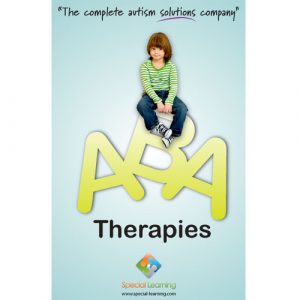Funding for Special Cases (Military)
Military health benefits cover just about everything under the sun. However, families of children with disabilities such as autism will need additional funding. The Autism Spectrum Disorders (ASD) are covered under the Tricare health care program, but there are additional programs that you, as a military parent, will have to enroll in. The coverage is substantial but may not cover absolutely everything you will need to ensure that your child has all the care he needs to become a success.
Eligibility
If you suspect your child has autism or he has already been diagnosed with an autism spectrum disorder, he may qualify for assistance benefits from Tricare’s Enhanced Access to Autism Services. However, very specific eligibility requirements must be fulfilled, such as your child must be at least 18 months old, registered with the Extended Health Care Option, and diagnosed with one of the following:
- Autistic Disorder (AD)
- Childhood Disintegrative Disorder (CDD)
- Asperger’s Syndrome (AS)
- Pervasive Development Disorder-Not Otherwise Specified (PDD-NOS)
Tricare
Tricare is the military’s healthcare insurance provider. According to the Tricare.mil website, you must be “a person currently serving in one of the seven uniformed services of the United States under a call or order that does not specify a period of 30 days or less.” You must be considered to be in “active duty” status.
Extended Care Health Option (ECHO)
As a service member or dependent, you must be registered with the Extended Care Health Option (ECHO) program. ECHO is a supplemental program in addition to Tricare’s basic coverage that provides financial assistance for services and supplies. There is no enrollment fee for ECHO, but a family member must:
- Have an ECHO qualifying condition—autism qualifies
- Be enrolled in the Exceptional Family Member Program (EFMP), provided by the parent’s branch of service
- Register for ECHO with ECHO case managers in your Tricare region
Coverage Limits
Enrollees in the ECHO program are eligible for up to $36,000 per fiscal year. Those funds are solely for the care of your child with autism. The coverage is not associated with other medical expenses that may arise outside of your child’s autism care. For example, if your son has to visit the ER for injures from riding his bike and the injuries are unrelated to his condition, the costs of that visit are not deducted from the $36,000. There are monthly deductibles associated with using the ECHO program, ranging from $25 for an E-1 to $250 for an O-10, but only if services are used that month.
Educational Interventions for Autism Spectrum Disorders (EIA)
Tricare uses what is called Early Intervention Providers (EIP) who can provide their services at your child’s school and/or at home. The providers are broken down into two groups: tutors and supervisors. Tutors are likely to be the behaviorists that come into your home to help teach ABA techniques while supervisors teach at schools and daycares, in addition to monitoring tutors. There are limitations on how much home coverage is provided; an ECHO supervisor will be able to explain what the precise limitations are.
Additional Resources (Parents)
Teaching parents how to help their children with autism is covered by the Specialized Training of Military Parents (STOMP) program. STOMP provides training about laws, regulations, and resources for families of children with disabilities. STOMP also helps families develop their own parent education support groups while providing a voice for the families.
Copyright © by Special Learning Inc. All right reserved.
No part of this article may be reproduced in any manner whatsoever without written permission except in the case of brief quotations embodied in critical articles and reviews. For information, contact Special Learning Inc., at: contact@special-learning.com











